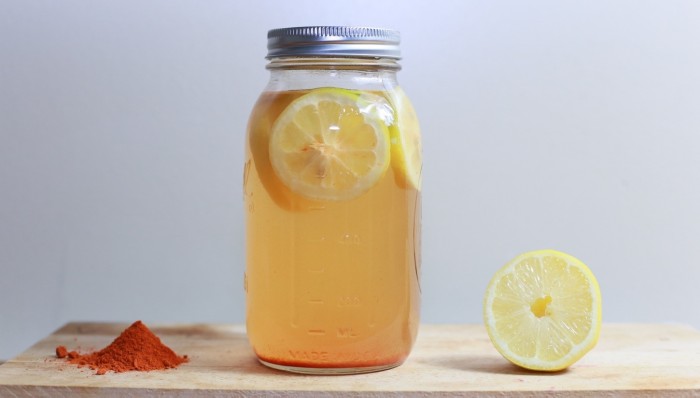How much water should you be drinking? Maybe not as much as you think!
Unlike most diet rules, drinking plenty of water is a concept most people can agree on. The question is: How much water is “plenty?” And when is “plenty” too much? The common recommendation is 8 cups or 2 liters a day. This blanket rule seems a bit oversimplified, however, especially considering that we all have different body weights and activity levels—not to mention, we live in diverse climates, too!
Indeed, as Erica Kenney, a research fellow at Harvard School of Public Health explains, the notion that we’ll be under-hydrated if don’t get our 8 cups is an “urban myth.” This myth may have even gotten its start in a 1980s French bottled water marketing ploy.
What is the right way to stay hydrated then?
Eat Your Water
As it turns out, staying hydrated isn’t just about gulping down H2O. Consuming hydrating foods (think raw produce) plays a large role in cellular hydration.
Dr. Howard Murad, UCLA clinical professor of medicine and founder of the luxury skincare line Murad, clears up a common misunderstanding about getting enough water: “Hydration is about the water you hold in the body, not drink, and it’s the water eaten that goes toward replenishing cellular water, essential to the skin’s aging process and other general wellness.” Studies indicate, he explains, that fruits and vegetables hydrate the body nearly twice as much as a regular glass of water. Because produce is rich in “structured water,” i.e. water within the plant cells, this form of water helps keep the body hydrated for longer. You don’t have to work hard to experience these benefits; a third of a cucumber, a vegetable that’s 97% water, contains as much water as a glass of water. You can even get water from potatoes, which are about 79% water.
Rethink Drinking (or Not Drinking) During Meals
Whether or not you enjoy having a beverage with your meals, drinking fluids before, during, and after consuming food effects your digestion. Nutritionist Andrea Nakayama explains that contrary to popular belief, drinking during mealtime may not be so terrible: “legend is that drinking water with a meal will dilute stomach acidity. The dilution of stomach acidity then inhibits our ability to breakdown foods, particularly proteins. It turns out that water won’t significantly affect the digestive juices and therefore will not interfere with digestion.”
Nakayama contends that in fact, the opposite may be true. Drinking water prior to meals stimulates the GI tract and peristalsis, which is responsible for moving food through the GI system. What’s more, “some research shows that drinking water boosts metabolism for up to an hour after being consumed.”
Before serving up drinks with dinner, however, consider the temperature of the beverage. As Ayurvedic tradition maintains, drinking cold/icy beverages smothers “digestive fire.” A warm beverage, like hot tea, however, may be just the thing.
Consider how You Hydrate before You Exercise
Tim Noakes, professor of sports medicine at the University of Cape Town, notes that drinking water before you feel thirsty can be dangerous. Over-hydration, also known as water intoxication, can flush minerals and electrolytes from the body and may even lead to exercise-associated hyponatremia (EAH), in which sodium levels are dangerously low. For your average workout, Noakes explains, there’s no need to stress hydration: “The body is adapted for conditions of mild dehydration, and in most cases, the water consumed before your leave the house suffices.” In fact, “tactical dehydration,” or slight fluid loss prior to a workout, may actually increase athletes’ performance.
Monitor Your Hydration
The color of your urine is a good indication of how well hydrated you are. It’s simple: If your urine is looking dark, you’re probably a little dry. If it’s nearly clear, you’re probably over hydrated. You want to aim for a “pale, straw-like color” according to beauty writer Danielle Fox.
What’s your favorite way to stay hydrated?
Related: Should You Be Drinking Alkaline Water?
Should You Eat Before You Exercise?
Get more like this—Subscribe to our daily inspirational newsletter for exclusive content!
Photo: Milo McDowell via Unsplash

